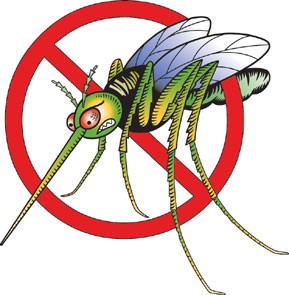
Most people under estimate the dangers of Malaria, but it must never be forgotten that malaria is a potentially life-threatening disease. If you are travelling to a country which presents a risk from Malaria You must take preventative measures to protect yourself. If you have been issued with a log in to our website you can use our world travel map to review areas where Malaria presents a risk.
Humans get malaria from the bite of a mosquito infected with the parasite. You can usually prevent malaria by taking an antimalarial drug and by avoiding mosquito bites.
Symptoms of Malaria
These include fever and flu-like illness, including shaking chills, headache, muscle aches, and tiredness. Nausea, vomiting and diarrhoea may also occur. Malaria may also cause anaemia and jaundice (yellow colouring of the skin and eyes) because of loss of red blood cells. Complications of untreated malaria include mental confusion, seizures, coma, kidney failure, and death.
Malaria symptoms will occur at least 7-9 days after infection; fever in the first week of travel is unlikely to be malaria, although any illness should be promptly evaluated.
Immediate treatment of malaria is critical. Anyone who becomes ill with a fever or flu-like symptoms while travelling and up to one year after returning home should immediately seek professional medical care, and advise that you have been in a malaria-risk area.
Antimalarial drugs are available, although most do have some side effects. Minor side effects such as nausea, occasional vomiting, or diarrhoea usually do not require stopping the antimalarial drug. However if you cannot tolerate your antimalarial medication seek an alternative – do not go without!.
Consult your local medical centre to get advice on which antimalarial drugs should be taken when visiting different countries. You will be prescribed one of the following drugs: Atovaquone/proguanil (brand name Malarone); Doxycycline (many brand names); Mefloquine (brand name Larium); Chloroquine (brand name Aralen)
Self Treatment - Malaria can be a fatal disease if not treated quickly. If your travel itinerary will take you more than 24 hours away from professional medical care, request a self treatment drug from your health provider.
Prevention - Protect yourself from mosquito bites. Mosquitoes that transmit malaria usually bite between dusk and dawn. At these times, stay in doors if possible, or wear long sleeved shirts, long trousers and a hat. Apply insect repellent containing DEET to exposed skin only; do not use under clothing.
DEET is toxic if swallowed, so spray outside; wash skin with soap and water after coming indoors; do not put repellent on broken skin or wounds; do not breathe in or get into the eyes.
Take a flying insect spray or mosquito coils on your trip to help clear rooms of insects. If you are not staying in well-screened or air-conditioned rooms, take additional precautions, including sleeping under mosquito netting. Bed nets sprayed with the insecticide Permethrin are more effective.
PREVENTION OF MALARIA - Take antimalarial drug
- Prevent mosquito bites
- If you get sick seek professional medical advice immediately
|